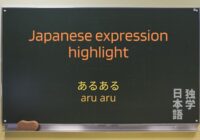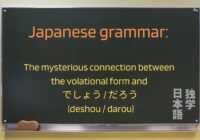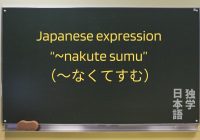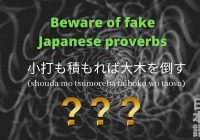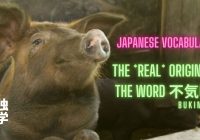Japanese expression highlight: あるある (aru aru)
In this post I would like to go over the casual expression あるある (aru aru), which doesn’t have a literal parallel in English. I will also talk a little about where it is derived from. To give some context first to how you might see this phrase used, imagine an article titled “テレワークあるある” (terewaaku aru… Read More »
